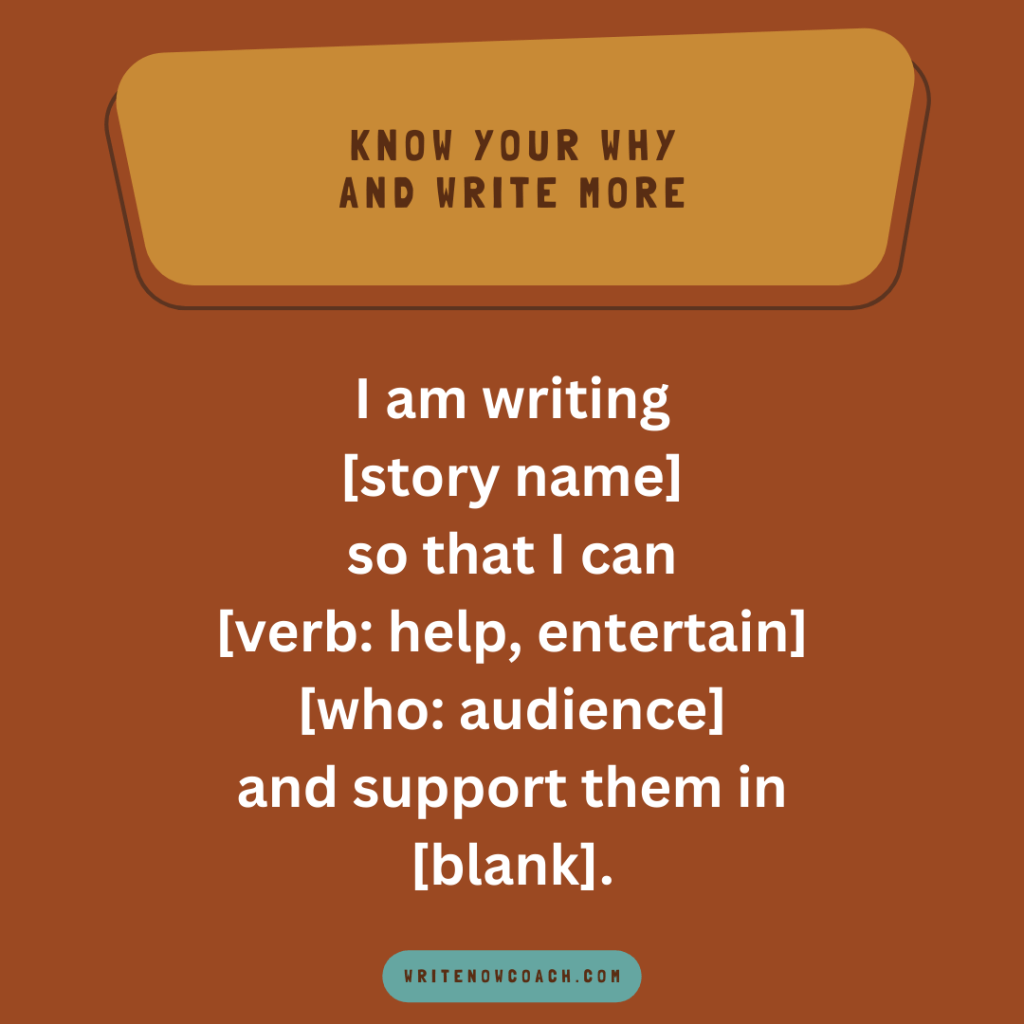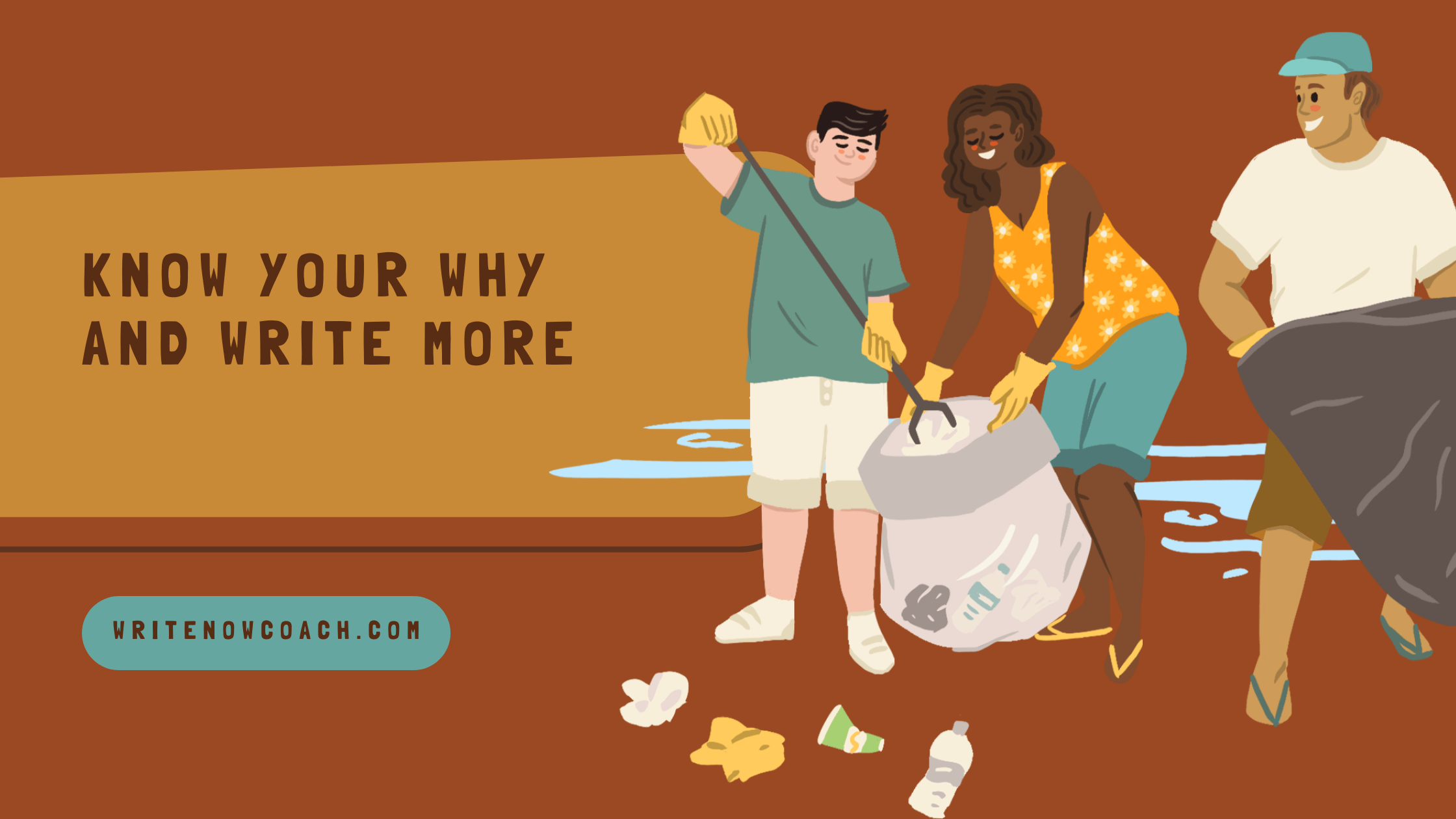Know Your Why and Write More
by Rochelle Melander
When I meet a new client, I ask them to tell me about their project and why it matters to them. When I know why they want to write a book or workshop, I know what motivates them to move forward. This helps us work together to figure out how they can overcome any obstacles they might encounter.
In the Writing Accountability Group, we spend part of the first session talking about WHY we are committed to our current project. Then we write a purpose statement. That statement helps guide participants through the ten-week program and beyond.
Whenever they get stuck, they can look at their purpose statement and remember WHY they are working on this project. When things get challenging, the purpose statement—or their WHY—gives them a reason to persist.
Several years ago, I worked with a professor and leader who was writing a book to help individuals confront climate change. I’m convinced he was able to make time to write because he had a strong why.
The songwriter Nina Simone was angered by the bombing of Sixteenth Street Baptist Church that killed four little girls and the murder of Medgar Evars. These two events fueled her transition from pop singer to protest singer—and inspired her to write the song Mississippi Goddam.
The experts agree
Simon Sinek clarified the power of why in his book, Start with Why. He wrote:
Very few people or companies can clearly articulate WHY they do WHAT they do. By WHY I mean your purpose, cause, or belief – WHY does your company exist? WHY do you get out of bed every morning? And WHY should anyone care?
People don’t buy WHAT you do, they buy WHY you do it.
Find your why
When it comes to writing a book or anything else, you have to buy into it first. And you’re going to have an easier time doing that if you know your why.
Writers, look at your current project. Do you know your why?
If not, you can use one of the following questions to help you figure out your why.
+If you had this book or resource at an earlier stage in your life, how would it have benefited you?
+How will this project help your ideal reader? Could it get them out of a tight spot, guide them through a difficult time, or entertain them on a tough day?
+Why is it important for you to work on this project right now? How does it serve you and your life?
State your why
I’m a big fan of writing purpose statements. They help us articulate why we are doing what we are doing. Here’s a template:
- I am writing [story name] so that I can [verb: help, entertain, etc.] [who: name audience] and support them in [blank].

If you want more on writing a purpose statement, check out my book Level Up and my blog post: Define Your Purpose.









